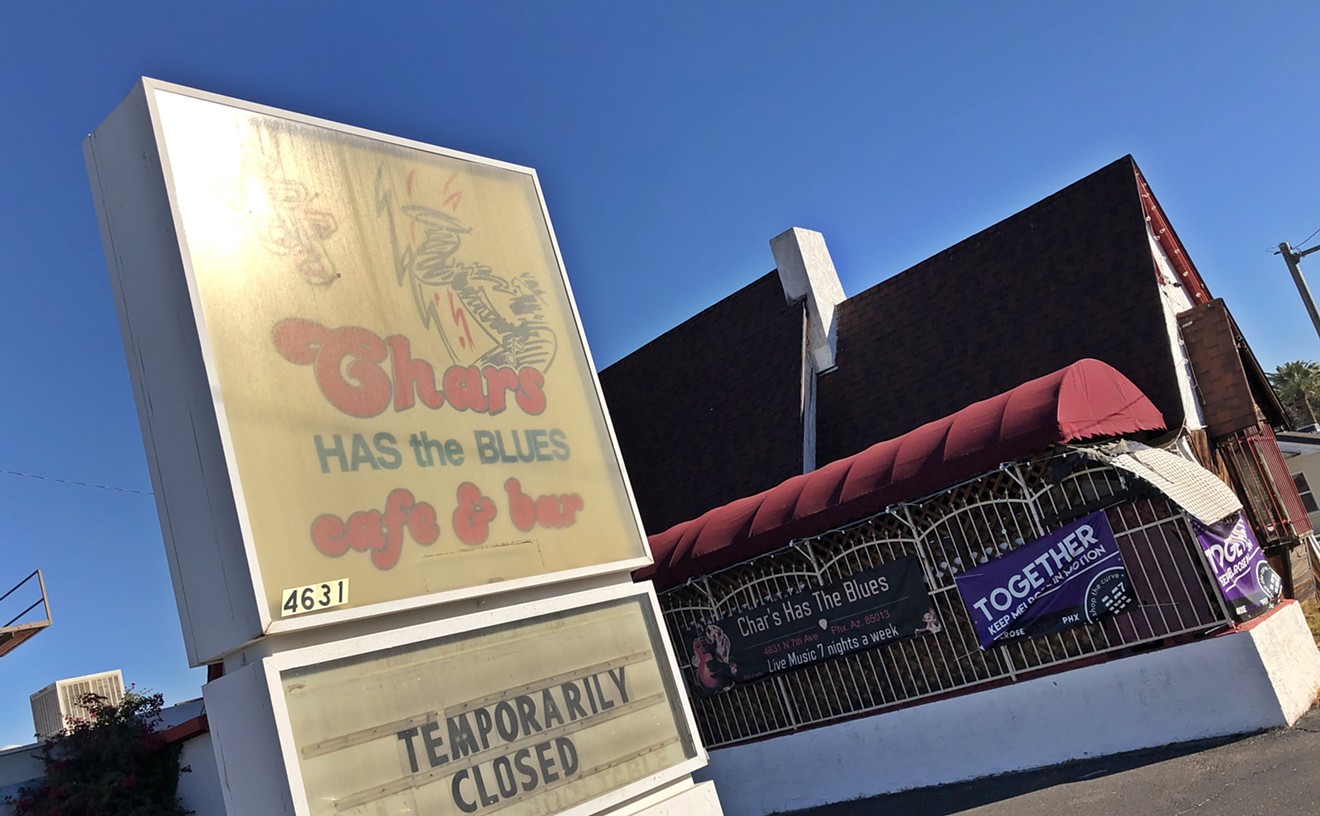It's a voice that demands attention, to be sure. It is also, curiously in this high-exposure, MTV age, a voice without a face.
"Into the Night," the melodramatic mid-tempo ballad that's quickly scaling Top 40 playlists at stations from Phoenix to Baltimore, has become wildly popular with listeners, despite the invisibility of its singer, Benny Mardones. Young pop fans eager for a look at the emotional vocalist with the name that sounds like a character out of an old Hudson Brothers comedy skit haven't been able to find his mug in a video. And it's unlikely many have had any luck finding it on an album cover in the local record store.
Unless, that is, they've checked through the oldies cutout bins. You see, this supposedly "fresh" new song (as many stations have been identifying it on the air) was already a sizable hit once before--nearly ten years ago. And that sexy-sounding singer is now a paunchy, 39-year-old divorced father of one who's been living out of a suitcase since "Into the Night" royalty checks from its first ride on the charts--and the singer-songwriter's attempts at follow-up hits--stopped coming.
The song, a No. 11 hit from the summer of 1980, has been given a second life on the radio thanks to the largely self-promotional efforts of a Phoenix Top 40 station. According to KZZP program director Bob Case, "Into the Night" was put into rotation as an attempt to duplicate the phenomenon credited to the station last year. KZZP's out-of-the-blue resurrection of UB40's 1984 sleeper "Red Red Wine" propelled the previously ignored single to the top of the charts last summer and generated a heap of music industry credibility for the station. "We were in a meeting, trying to think of another song we could bring back," recalls Case. "And somebody brought up Benny Mardones."
Gene Baxter, then music director at KZZP and now acting program director at X-100 in San Francisco, still had his original copy of the 1980 single and brought it into the station. "It was the perfect record to bring back," he says, "because everyone in radio knows the song, and apparently no one in the audience remembers it." The 45, Baxter says, was always "one of those records that radio guys bring up when they're sitting around talking about the `great lost singles' of the Seventies and Eighties. So it wasn't surprising that once KZZP and [competing hot-hits station] Y-95 started playing it, it seemed to take almost no prompting to get everybody in the world to start playing it, too."
Add to the enthusiastic milieu Polydor, the label that first put out "Into the Night." The record company is planning to re-release the single Tuesday and the album on which it appeared May 23.
Radio guys like playing "Into the Night" because of the large 18- to 24-year-old female audience it brings to their stations--a particularly sought-after demographic group among advertisers. "It's a lady-killer of a record. Always was," offers Todd Fisher, program director at Milwaukee's WKTI and another former KZZP staffer. "I remember being in high school when the record first came out, and all the girls just loved it."
Interestingly, none of the deejays spinning "Into the Night" seems very intent on locating its singer and, say, flying him into town for a personal appearance. Nabbing credit for being the first station on the dial to rediscover the single seems to have overshadowed any thoughts about telegraphing some belated kudos to the hit's creator. "I don't think many deejays playing it really know much about Benny Mardones' background, or even care," shrugs Baxter.
"I don't think we're gonna see anything like Mardones Mania," chuckles Case. "I think people just like the song."
But this resurrection has, almost incidentally, given a second life to Mardones. The very model of the flash-in-the-pan, one-hit wonder, he made a quick mint off his brief moment in the spotlight, then just as quickly blew it all on wild living and ludicrous business decisions in classic This Is Spinal Tap fashion.
TRACKED DOWN AT HIS modest new home in Woodstock, New York, the affable, good-natured singer fairly bursts with the born-again enthusiasm of a performer who hasn't talked to an interested interviewer for--he readily admits--"a long, long time."
"It's just a mind-blower," says Mardones in the bearish, good-ol'-boy drawl that remains from his small mill-town upbringing in Savage, Maryland. "I mean, what do you say when you're going down underwater for the third time and somebody suddenly throws you a net? It's just an amazing thing."
Mardones, who for the first time in three years is living in his own house, was by no means the first pop singer to strike gold with one killer single, then quickly vanish from the public eye. The rock 'n' roll landscape is littered with Mungo Jerrys and Billy Pauls and Nick Gilders who each endeared themselves to the public's hearts for three minutes and fifteen seconds, then quietly dropped from sight. But in Mardones' case, the disappearing act was actually quite deliberate.
"I just got really beat up by the big time when `Into the Night' was a hit," he says. "It all came real fast for me. A lot of money and a lot of success. And I did some stupid things, like people sometimes do when they get a lot of money and they're in the fast lane, you know?"
Drugs were one of those "stupid things" Mardones admits to--as was instantly firing his manager and "turning over a few desks" at Polydor, his former label. (Mardones threw his furniture tantrum when he decided the record company was poorly promoting his second album, prophetically titled Too Much to Lose.)
"I was like an unguided missile. I was getting a really bad reputation for being a lunatic," Mardones confesses. "So I finally flew out to California and just sort of disappeared for four or five months. And when I say I disappeared, I mean it literally. No one--not my family, not my friends--knew where I was. I just went out to Santa Monica, got a hotel room, and just about stayed in bed for half a year, trying to get a handle on things and figure out what the hell I was gonna do. I felt that when I got my head on straight and was ready to get back in the ring, everyone would welcome me back with open arms."
Surprise. Ignoring the fast-paced bustle of the music business, Mardones neglected to check the expiration date on his overnight celebrity. By the time he was ready to rejoin the rock 'n' roll rat race, the record-buying public had long moved on to other new sensations--as had Mardones' record label, jilted manager and most of his music biz contacts.
The failure hit the normally lucky singer pretty hard. "When `Into the Night' became a hit and I did my first big show in Washington, D.C., which was the closest city I played to my hometown, 811 out of the 1200 people who lived in Savage came to see me," he recalls. "Practically my entire town came to my show. I was like the hometown hero. So when everything started falling apart, I felt like I was letting down more than myself. I was letting down my whole town."
If Mardones' success story was your typical hometown-boy-made-good cliche, his fall from riches to rags was a storybook tale of equally epic proportions. Losing his house to the I.R.S. and his wife to another man, the downtrodden Vietnam vet slummed through the entire Reagan era, toting his guitar and a few meager possessions from one friend's crash pad to another. He never stopped writing songs or performing, with an unusually loyal band, a couple of times a year around Syracuse, where "believe it or not, I've still got some fans." But the record companies were no longer biting, and Mardones--who, in his brief heyday, claims he shared poolside drinks with Bruce Springsteen and an apartment with Roy Orbison--began sinking deeper and deeper into depression. "I was really living just as bad as a person could live," he says. "I had gone from having everything in the world to having nothing. And it was a hard thing, man, for me to wake up to." His first taste of renewed good luck came when friend Richard Fusco agreed to co-manage the fallen shooting star with Ric Aliberte, a New York manager who represents mostly hot rock producers. One of Aliberte's clients, Whitesnake/Journey/Asia boardman Mike Stone, agreed to produce some new tracks for Mardones. The light was just beginning to blink at the end of the tunnel when "all this stuff with `Into the Night' happened." Now, Mardones says, "labels that weren't interested in me before are suddenly calling up my manager, saying, `Let me hear the new stuff.' It's like the gods of rock 'n' roll brought me back, and . . . shoot, my life is great again! I feel like myself again!" He's not a particularly religious man, but Mardones' voice and demeanor take on a zealous, almost evangelical tone the more he talks about why he's been given a second chance to follow up his one hit. Words like "blessed" and "reborn" pepper his postulations, and he even allows that Barry Mraz, the underrated producer of "Into the Night" who died of a heart attack earlier this year, may be "helping me from up in heaven or somethin'."
The spirited singer might be dismayed to learn that the real "gods" behind the song's resurrection are merely a handful of Top 40 program directors trying to flex some of their own hit-picking muscle on a nationwide scale. "It's kinda neat to see these records we pick out of thin air being regenerated," admits Todd Fisher, delighted over news that Polydor plans to re-release the single. "In a way, we're kinda getting off on it. And when you do something like this--bring a record back from the dead--your station gets a reputation in the industry as a free thinker."
In the end, given Fisher's analysis, Mardones seems to have become little more than a playing piece in the popular new radio game of bringing back forgotten songs as heavy-rotation "currents." It could have just as easily been Rupert Holmes.
But Benny Mardones is too all-fired up on life right now even to consider such a cynical explanation. "Somebody's doing something, man," he booms in a voice exuding the full measure of his renewed vigor. "I owe somebody something. I just don't know who to thank!









